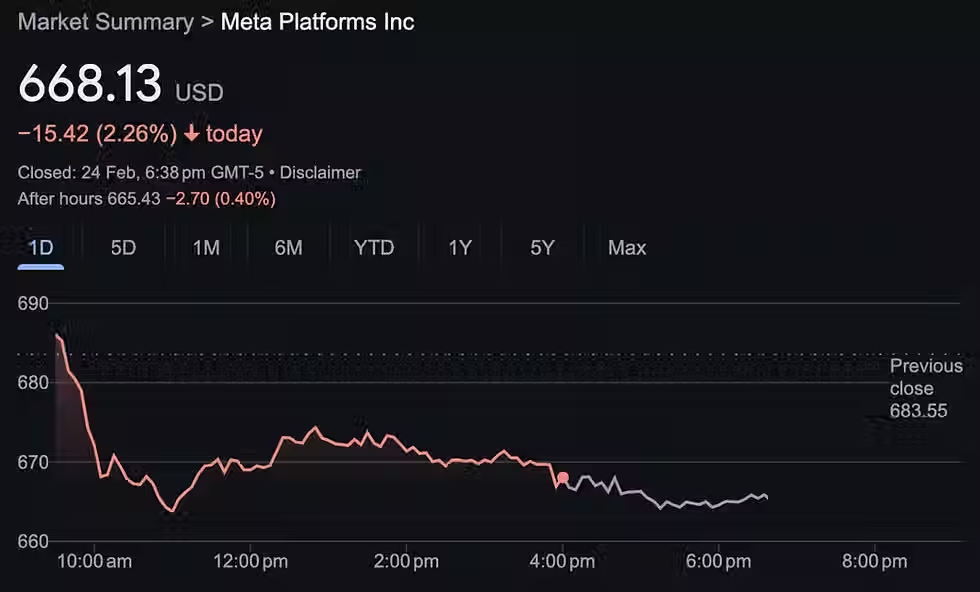Inside Sean's Brain
- Buffett Online School

- Sep 20, 2023
- 5 min read

Diversifying your portfolio can enhance your earnings while minimizing your potential risks. But how can you strategically invest to safeguard your assets and optimize your profit potential? What strategies you should use to maximize your returns?
In this post, we’ll share with you some of the vital advice and learning that Sean Seah has gathered for many years in his investment journey so you can also have an idea of what you can and can not do regarding your investing.
At Buffett Online School, we also believe in investing in great companies you understand, and utilizing Free Investing Resources to help you start your financial freedom and investment journey is one of the best ways to learn.
Leveraging: Is It Good for Your Investment?
Sean began his sharing about leveraging by acknowledging that there are different types of leverage and mentioned that many investors are attracted to leverage because it promises quicker wealth accumulation.
Sean shared his experience using leverage when he first entered the investing world, starting with CFDs (Contracts for Difference) that allowed leverage up to 7 times. He explained the allure of quick gains and highlighted the risks associated with leveraged trading, such as interest charges and the potential for significant losses.
He also emphasized that leveraging involves borrowing money, which comes at a cost and urged caution, especially for beginners. He discussed the concept of "smart" leveraging, citing Warren Buffett as an example.
Warren Buffett leverages by acquiring insurance companies that provide him with substantial funds to invest without paying interest. This method allows him to leverage other people's money without incurring debt and interest costs.
Sean also mentioned using options as a form of leveraging, with capped risk but unlimited upside potential. However, he reiterated that beginners should be cautious with leverage, which can be highly stressful and lead to significant losses.
Sean advised small investors to focus on mastering their investment skills with limited capital rather than seeking quick, unrealistic returns through leverage. He emphasized discipline and careful capital management as crucial for long-term success in investing.
Regarding Warren Buffett's evolving investment strategy, Sean discussed how Buffett initially followed Benjamin Graham's value investing principles, particularly the net method, which focuses on buying companies below their asset value.
Later in his career, Buffett shifted toward investing in great businesses with growth potential, even if traditional metrics did not necessarily undervalue them. Sean suggested it might be challenging for beginners to find undervalued stocks using the conventional value investing approach due to increased market participation, making investing in great businesses at a fair price a more practical strategy.
When to Sell Stocks
Sean mentioned two reasons for buying a company’s stock:
It's a beautiful business that can grow.
Stock is priced correctly.
When it came to the timing of selling stocks, Sean emphasized that it should be based on the reasons for buying them in the first place. If the original reasons for buying a stock, such as its growth potential or fair valuation, no longer exist, it might be a good time to sell.
He discouraged trying to time the market based solely on the price-to-earnings ratio (PE ratio). He advised investors to consider where their money can be best allocated within their overall portfolio.
He emphasized a pragmatic approach to investing and encouraged investors to prioritize the overall performance of their portfolio rather than individual stocks.
Warren Buffet: Double Your Money With Compounding
Buffett's statement of a 50 percent annual return may imply a different, linear growth yearly. Instead, it suggests that, over time, his investments could nearly double each year when held for the long term through the power of compounding.
This confidence in his strategy is backed by his six decades of investment experience, knowledge, and ability to identify undervalued companies.
While not everyone can achieve these results immediately, modern investors have access to more tools and technologies, including AI, to assist in pursuing such returns. However, what remains to be discovered is Buffett's level of experience and temperament, which are not easily attainable.
Microsoft Stock
Sean also shares that he purchased Microsoft due to its potential for growth and strong financial position. Microsoft's investment influenced the decision to OpenAI, a valuable addition to the company. The investor believed that Microsoft could compete with Google and was impressed by its numerous ideas and synergies, including platforms like LinkedIn. His decision to buy Microsoft stock was based on anticipating business growth and potential opportunities.
Skechers Stock

Skechers has been favored for many years due to its appeal in the sports industry and perceived value as a business. The initial attraction to Skechers stemmed from a gift of comfortable shoes despite stereotypes associating them with older individuals and knee problems. Skechers primarily produce sports shoes.
The investor's perspective on Skechers initially involved its market capitalization, valued at 5 billion when first purchased. Presently, the market capitalization has risen to 7.5 billion.
Nike Stock

The market cap of Nike, standing at 148 billion, is compared to evaluate growth potential. Nike operates in the athletic shoe industry and demonstrates substantial growth possibilities. The investor sees Nike as a remarkable business.
However, when assessing Skechers, the goal isn't to surpass Nike entirely. Doubling its value would already result in a profitable investment. Skechers is considered an excellent business with a fair price due to its affordability and smaller size. The investment decision revolves around the belief in Skechers' growth potential.
Sean also mentioned the simplicity of investing, emphasizing that overcomplicating analysis can lead to indecision. Even without extensive research, you can still achieve reasonable returns by investing in companies you believe in.
Portfolio Diversification
Regarding portfolio diversification, beginning with 15 to 20 stocks during the initial 3 to 5 years of investing is advisable. This approach allows investors to gain experience, as some investments may not perform as expected.
As one's understanding and expertise grow, one can diversify further or focus on fewer high-confidence investments. Diversification is seen as a crucial aspect of portfolio management and self-improvement in investing.
Making mistakes is a normal part of the investing journey, and the key is to learn from them to construct a solid investment portfolio.
Managing Emotions for Investors
Managing emotions is also a challenging aspect for many investors. Regarding managing emotions, Sean advises detaching from the results and not being overly attached to gains or losses. This mindset helps in making better decisions.
The importance of starting with small amounts of money that one can afford to lose is that it eases emotional stress for beginners.
Regarding cash management, Sean suggests reserving liquid cash, covering several years of living expenses. This provides a safety net in case of unexpected events.
He also discussed Warren Buffett's evolving investment strategy, including investments in companies like Snowflake. It is suggested that Buffett entrusts certain investments to his lieutenants, Ted and Todd, demonstrating his belief in their abilities. This approach aligns with his strategy of investing in businesses and people he believes in.
In conclusion, Sean advises investors to focus on becoming better investors over time rather than aiming for quick profits. The emphasis is on learning from mistakes and making better investment decisions, ultimately leading to improved returns and wealth growth.
Catch the full video on Chloe’s YouTube channel - Arigato Investor.
Join Our Free 2-Day BOS Value Investing MBA
At the Buffett Online School, we believe in learning the right investing mindset and system so we can start cultivating emotional detachment and grow our wealth safely and substantially in the long run.
Our next 2-day BOS MBA Value Investing Online Bootcamp is happening soon! We will teach you how to use Warren Buffett's proven investing method to maximize your portfolio.

Remember, you can cultivate the right investing mindset and unlock your potential to build wealth through intelligent investing. Together, we can create a network of educated investors who make informed decisions and contribute to their financial well-being!
In the meantime, feel free to check out some of our blog posts to continue learning. You can also join our BOS Telegram channel for more investing insights!




Comments